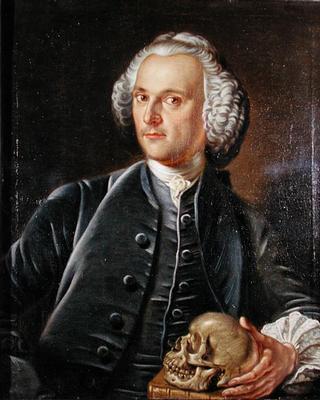Related Research Articles

The Dean Cemetery is a historically important Victorian cemetery north of the Dean Village, west of Edinburgh city centre, in Scotland. It lies between Queensferry Road and the Water of Leith, bounded on its east side by Dean Path and on its west by the Dean Gallery. A 20th-century extension lies detached from the main cemetery to the north of Ravelston Terrace. The main cemetery is accessible through the main gate on its east side, through a "grace and favour" access door from the grounds of Dean Gallery and from Ravelston Terrace. The modern extension is only accessible at the junction of Dean Path and Queensferry Road.

Thomas Tyrwhitt was an English writer, classical scholar, and critic. He was best known for his edition of The Canterbury Tales in which he modernized the language and provided extensive notes as well as a glossary.

Sydney Smith was an English wit, writer, and Anglican cleric. Besides his energetic parochial work, he was known for his writing and philosophy, founding the Edinburgh Review, lecturing at the Royal Institution and remembered for his rhyming recipe for salad dressing.
The Reverend Alexander Catcott was an English geologist and theologian born in Bristol, who became the vicar of Temple Church, Bristol and the author of numerous works on science and theology.

General Sir Henry Fane commanded brigades under Arthur Wellesley, 1st Duke of Wellington during several battles during the Peninsular War, and served both as a member of Parliament and Commander-in-Chief of India.
William Levett was the Oxford-educated personal chaplain to Edward Hyde, 1st Earl of Clarendon, whom he accompanied into exile in France, then became the rector of two parishes, and subsequently Principal of Magdalen Hall, Oxford and the Dean of Bristol.

Bowyer Edward Sparke was an English bishop.
Henry Lawe Corry Vully de Candole was Dean of Bristol from 1926 until his death in 1933.
Samuel Roffey Maitland (1792–1866) was an English historian and miscellaneous writer on religious topics. He was qualified as an Anglican priest, and worked also as a librarian, barrister and editor.

Thomas Garnier the Younger was Dean of Lincoln from 1860 until his death in 1863.

William Barrett (1733–1789) was an English surgeon and antiquary.

Hugh Hamilton was a mathematician, natural philosopher (scientist) and professor at Trinity College Dublin, and later a Church of Ireland bishop, Bishop of Clonfert and Kilmacduagh and then Bishop of Ossory.
James Hatley Frere (1779–1866) was an English writer on prophecy and developer of a tactile alphabet system for teaching the blind to read.
George Henry Glasse (1761–1809) was a notable Oxford Greek and Latin scholar, domestic chaplain to the Duke of Cambridge.

Joseph Sortain (1809–1860) was a British nonconformist minister, an evangelical Independent, philosophy tutor at Cheshunt College, and biographer of Francis Bacon. A reputed preacher of his time, he was called "the Dickens of the pulpit" by John Ross Dix.
Ezekiel Blomfield (1778–1818) was a Congregational minister, author and compiler of religious works and works on natural history. His parents were Stephen Blomfield and Elizabeth Blomfield. Ezekiel was the youngest of four children. He was born on 28 October 1778 at North Walsham, Norfolk then moved with his parents to Norwich. He died on 14 July 1818 at Great Glemham, Suffolk and was buried on 21 July 1818 in the grounds of the Meeting House at Wortwell, Norfolk.
Events from the year 1809 in Scotland.
Alexander Stopford Catcott (1692–1749) was an English churchman from Bristol, and headmaster of Bristol Grammar School from 1722 to 1743 or 1744. He preached in favour of Hutchinsonian ideas.
George Smith CIE FRGS LLD was a 19th-century Scottish historian and geographer who spent his working life in India. He was father to a family of eminent figures.
References
- ↑ Latimer, John "Annals of Bristol in the Nineteenth Century"
- ↑ "Online Exhibitions". 29 May 2013.
Powell, Arthur C. and Littleton, Joseph "A History of Freemasonry in Bristol" (Bennett Brothers,1919)